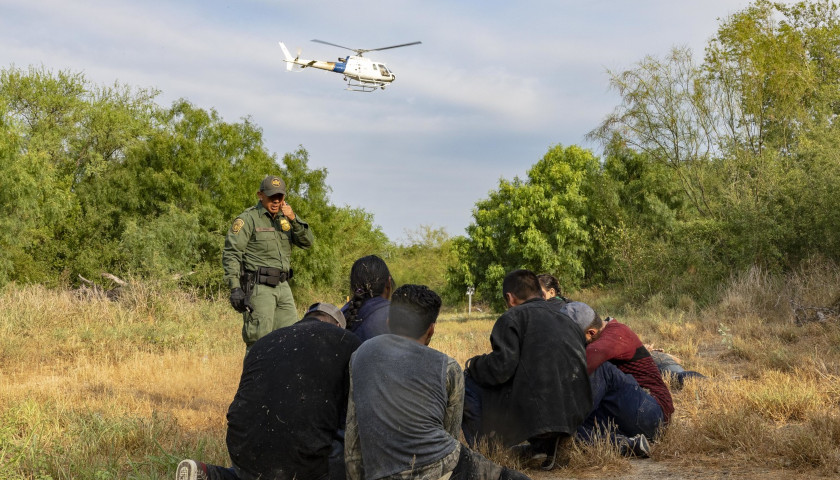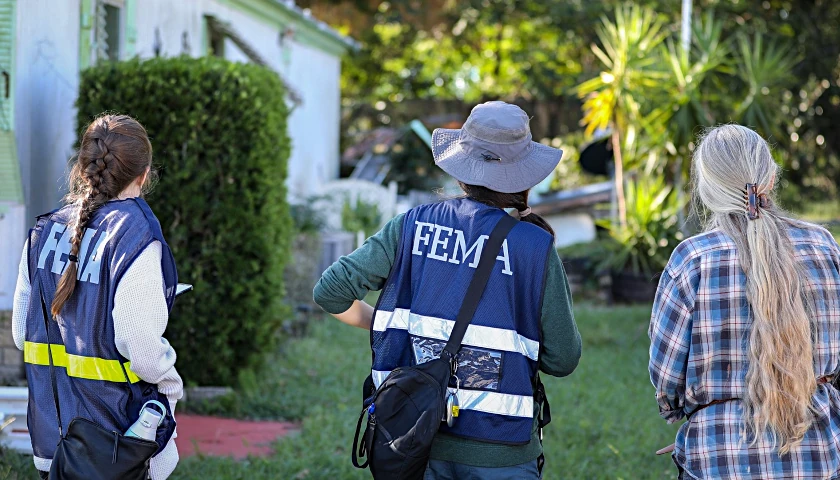by Jason Hopkins
The Trump administration is rolling out its own licensing standards for family residential centers, a move that will work around the Flores settlement and mitigate the illegal immigration crisis.
The Department of Homeland Security introduced a new policy Wednesday regarding family residential centers (FRCs) that house immigrant family units. The rule change, the administration argues, will allow DHS to keep families together during their detention while also stemming the flow of illegal immigration along the U.S.-Mexico border.
 “The Trump administration has established a new rule to respond to the realities of current immigration flows, a rule based on the principle that families should remain together during immigration proceedings,” acting Homeland Security Secretary Kevin McAleenan said during a Monday press conference.
“The Trump administration has established a new rule to respond to the realities of current immigration flows, a rule based on the principle that families should remain together during immigration proceedings,” acting Homeland Security Secretary Kevin McAleenan said during a Monday press conference.
Under the change, the administration will create a “licensing regime” for family residential centers. This will allow immigrant families living in the facilities to remain there longer than the 20-day limit currently established under the Flores settlement, a DHS official said to the Daily Caller News Foundation. By doing this, family units can remain in detention throughout the entire duration of their immigration court proceedings.
There will be two different ways this change can play out.
A state government can establish its own licensing regime for FRCs. Texas attempted to make their own standards, but it has since been bogged down in litigation. If a state is able to do so, however, then family detention centers would abide by their state licensing regime. For states that do not establish rules, then the administration will have the ability to use licensing standards set by Immigration and Customs Enforcement (ICE) in order to license FRCs.
“The facilities that we will be using to temporarily house families under this rule are appropriately, fundamentally different than the facilities where migrants are processed following apprehension or encounter at the border. They are campus-like settings with appropriate medical, educational, recreational, dining, and private housing facilities,” McAleenan explained.
These FRCs will be “non-secure,” meaning that there are no locks. Families who wish to walk about of facility have the ability to do so. However, families who leave would be at risk of re-arrest because they are violating immigration law. Amenities such as games, television, dining areas with “top notch” food, soccer fields, will be provided.
The Flores change addresses a problem that dates back to the Clinton administration, and exacerbated by a 2015 court decision.
The Flores settlement, signed in 1997, established stipulations and standards for the detention of unaccompanied alien children, and it established state licensing authority for these detention centers that house unaccompanied minors. However, this settlement was upended when a 2015 court ruling interpreted this to also apply to accompanied alien children, meaning children brought with their parents, or family units.
The issue with this ruling is that there are no state licensing programs for family residential centers (FRCs). State governments have comprehensive guidelines for the detention of adults and minors, but not for family units. This meant that immigration authorities have to release family units out of non-licensed facilities as expeditiously as possible, which led to the 20-day limit of detaining families.
The illegal immigration crisis, which has witnessed tens of thousands of family units arriving at the southern border every month, has forced the U.S. government to release them into the interior of the country by the thousands.For example, there were 68,000 family units who crossed the border in 2014. During this current fiscal year, 390,000 family units have been through the U.S., according to DHS.
“People know if you bring a kid, it’s a free ticket into the United States,” a DHS official said of the crisis and how immigrants are exploiting the current system.
The administration rule bypasses this conundrum by creating ICE standards for FRCs. The rule would effectively allow family units to be detained for the duration of their court process. By doing this, a DHS official said, the incentive to illegally enter the U.S. with a child in hopes of taking advantage of U.S. immigration laws is mostly eliminated.
An immigrant family cannot, theoretically speaking, wait until they are released from an FRC and simply ignore a later court date. They would remain in detention until their cases are adjudicated.
The rule change officially goes into effect 60 days after its introduction, but the administration expects lawsuits to bog down the roll out date.
– – –
Jason Hopkins is a reporter for the Daily Caller News Foundation.




